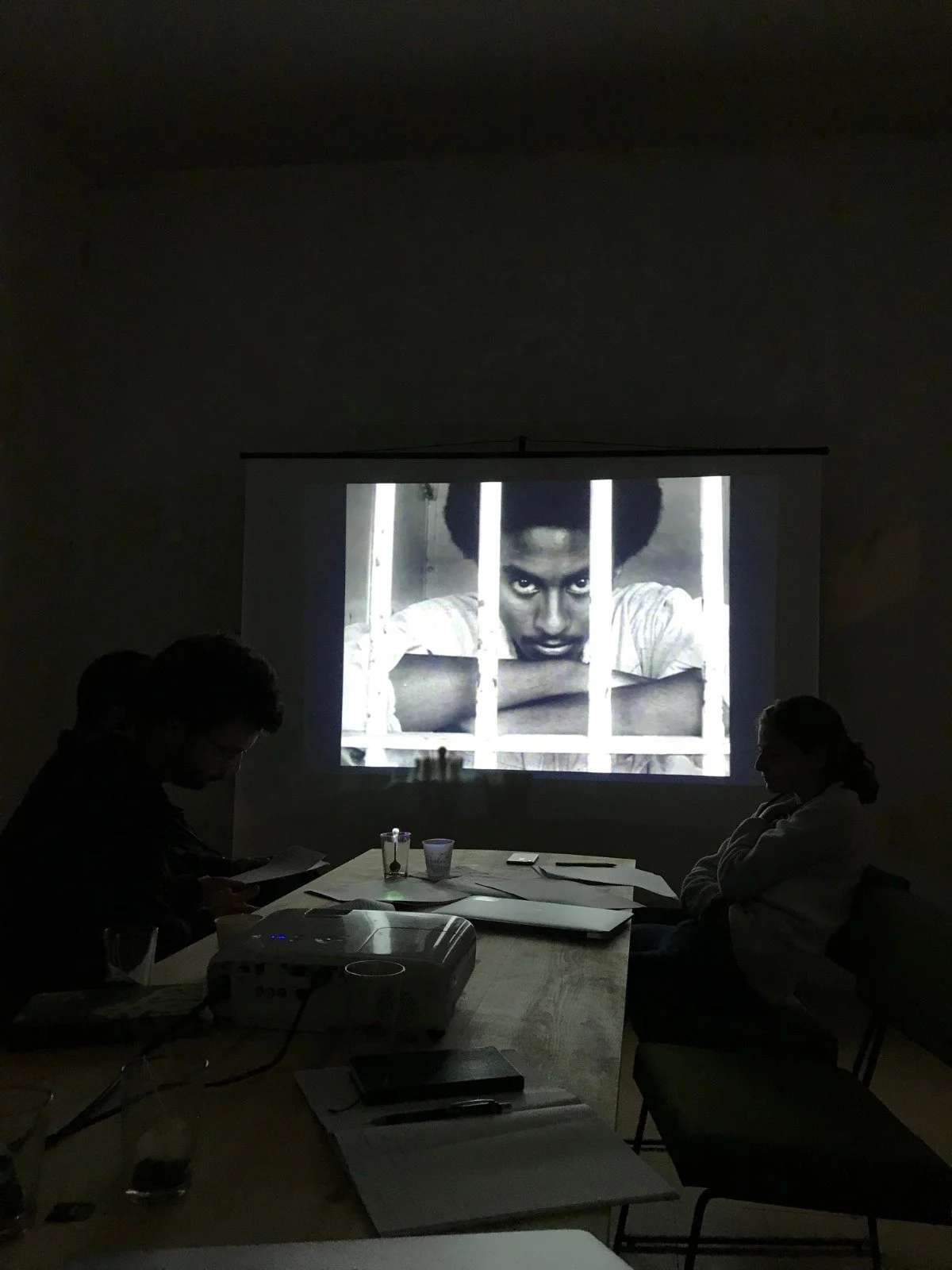Listening to Land: De-neocolonizing the imaginary, phd-in-practice in process -
Today the world is in crisis, one that has been driven by a “habit of being” created by modernity, capitalism and colonialism, defined by the glorification of knowledge and the disease of growth.[1] The project Listening to Land, which originates from the bodily experience of neocoloniality in the Arab world, has a twofold aim. First, to address this habit of being by expanding classical de-colonization theory with its incessant tie to the nation-state in both theory and cinema. In its place I will insist on a process of de-neocolonization for which in this project I will address only one domain, the relationship of humans and land. Colonialism after all begins with a taking of land.[2] I want to ask, how can we unlearn the current neo-colonial stance towards the land that is built on the foundation of private property, boundaries and borders. Second, I will seek to explore a visual language that might address the crisis of this neo-colonial moment. Rather than ask how image-making can help propose an alternative world, I want to ask can and if, how can images question the norms, or make strange - ostranenie - these habits of being, with the aim of preparing ourselves to face a world gone bad.[3] We will not find quick, nor easy, and possibly no solutions to this crisis we are in, but we must find a way to persevere to survive it, which we may begin by examining the “discursive regimes... that police the boundaries of [y]our imagination... and to reconnect with the metabolism we are a part of, the earth.”[4]
In Listening to Land I will spend time with the land to let its stories form on my skin. I will research indigenous feminist approaches to land and the history of the commons as collectively owned and worked land. These processes will feed into the production of a short experimental animation film, the publication of a book and the formation of a network of farmers and cultural practitioners who take seriously the revision of their relationship with land as an anti-capitalist, anti-modernity stance, with the aim of putting the earth back at the center of life.
(1) See Forbes, 1979, 46. The Gesturing Towards Decolonial Futures Collective, 2020.
(2) Schmitt, 2003. 48.
(3) Shklovksy, 2017, 24.
(4) The Gesturing Towards Decolonial Futures Collective, 2020.
This World is Strange began in Cairo, where the limits of free speech and a deteriorating political situation inspired the need to strengthen community, and a desire to address the changing cultural landscape under dictatorship. Examining the systemic reasons for the drain of culture from colonised/oppressed cultures into Imperial/Colonial States, Basma al-Sharif and Philip Rizk aimed to humbly resist this by questioning the usual circulation of culture through collective translations of a selection of films into Arabic.
After unexpectedly relocating to Berlin in the Spring of 2020, al-Sharif and Rizk saw the need to continue their project in light of the large diaspora of Arabic speaking communities in Europe. Their project is expanding and looking at the history of dubbing and its link to censorship, the logic of subtitling films into languages of the global North, and their distribution.
Their research will culminate with a week-long residency with artists, writers, musicians, and translators to engage with a selection of curated films whose form and subject matter question dominant modes of production. The participants will take part in collective activities (writing, performing, recording, translating) with the aim of producing ways to actively disrupt a hegemonic flow of culture and create links between voices that have overwhelmingly been directed towards audiences in the Occident.


